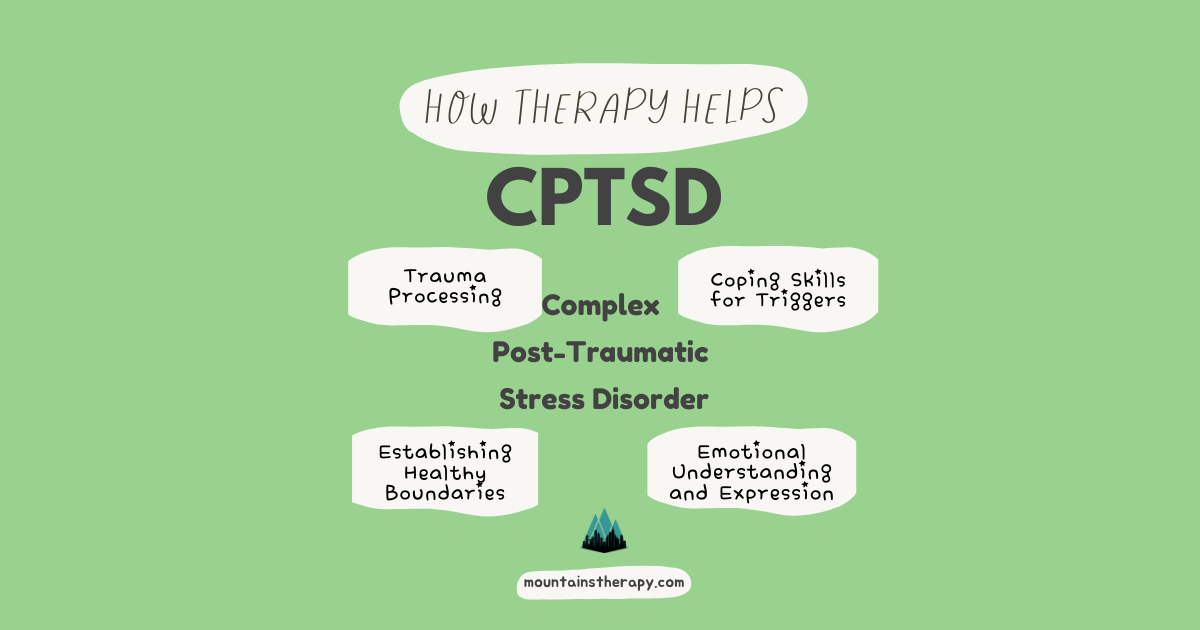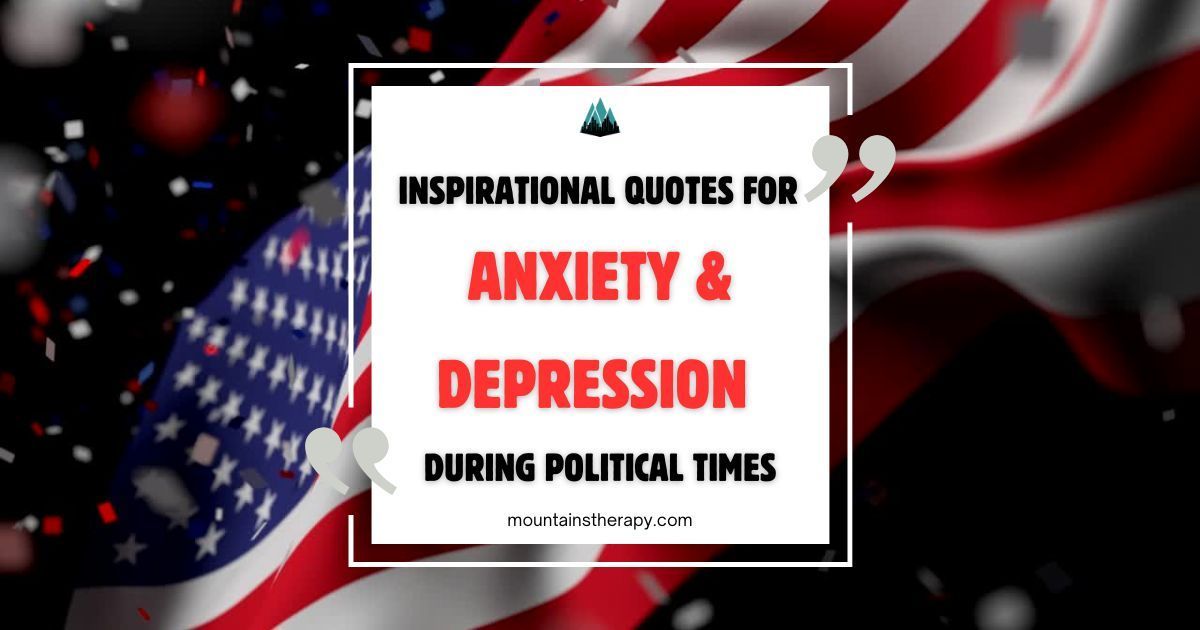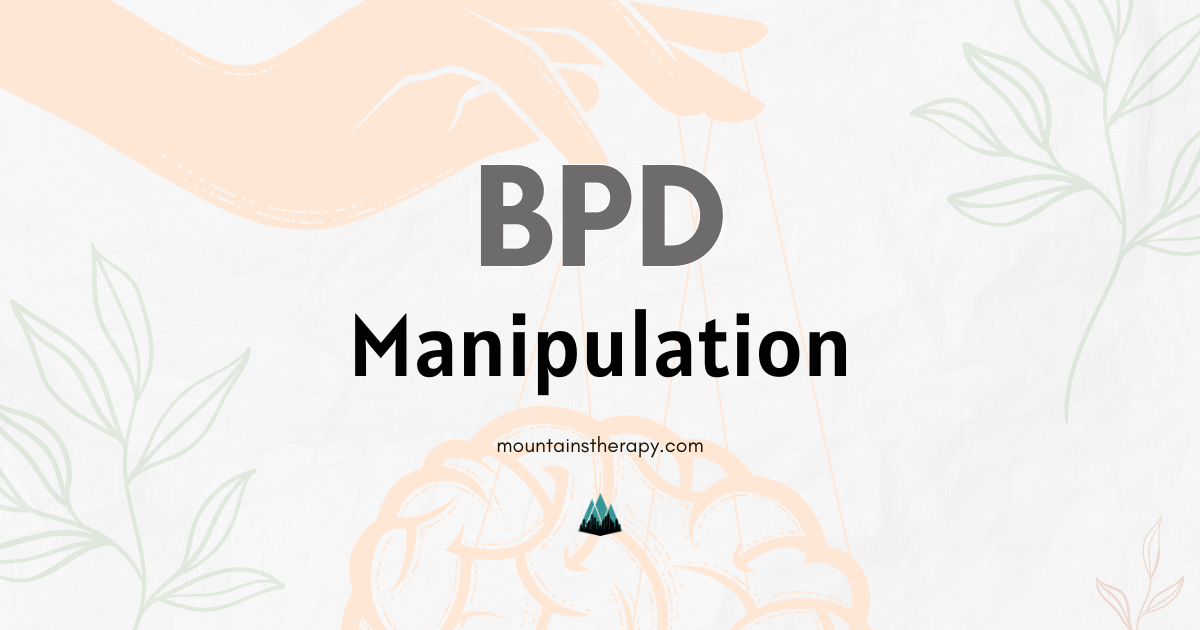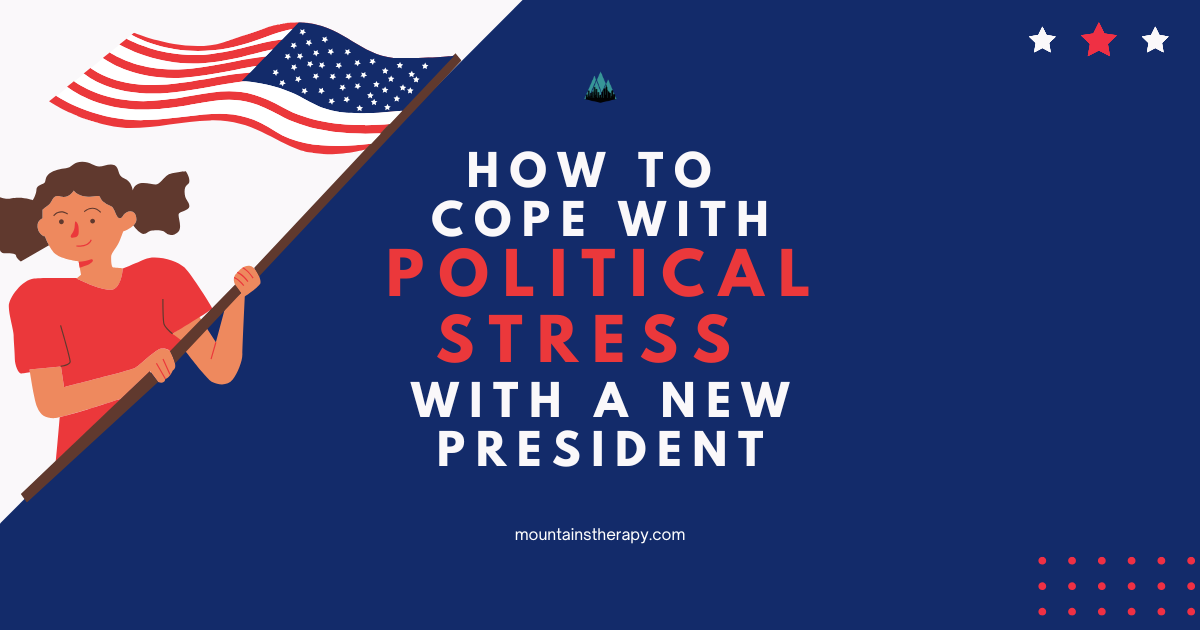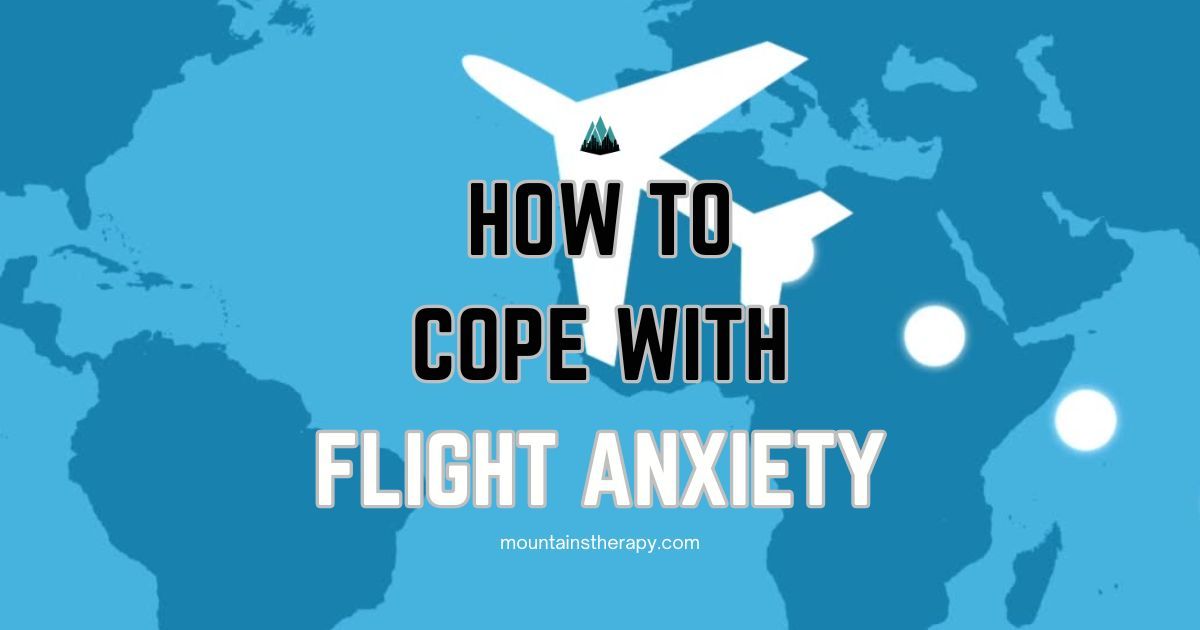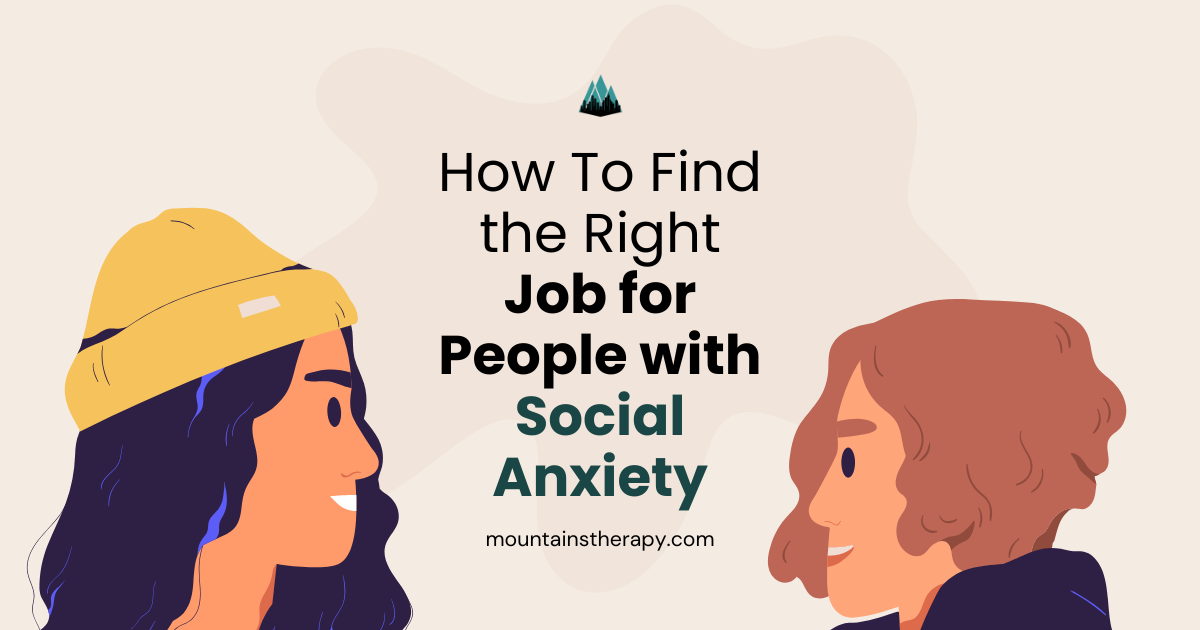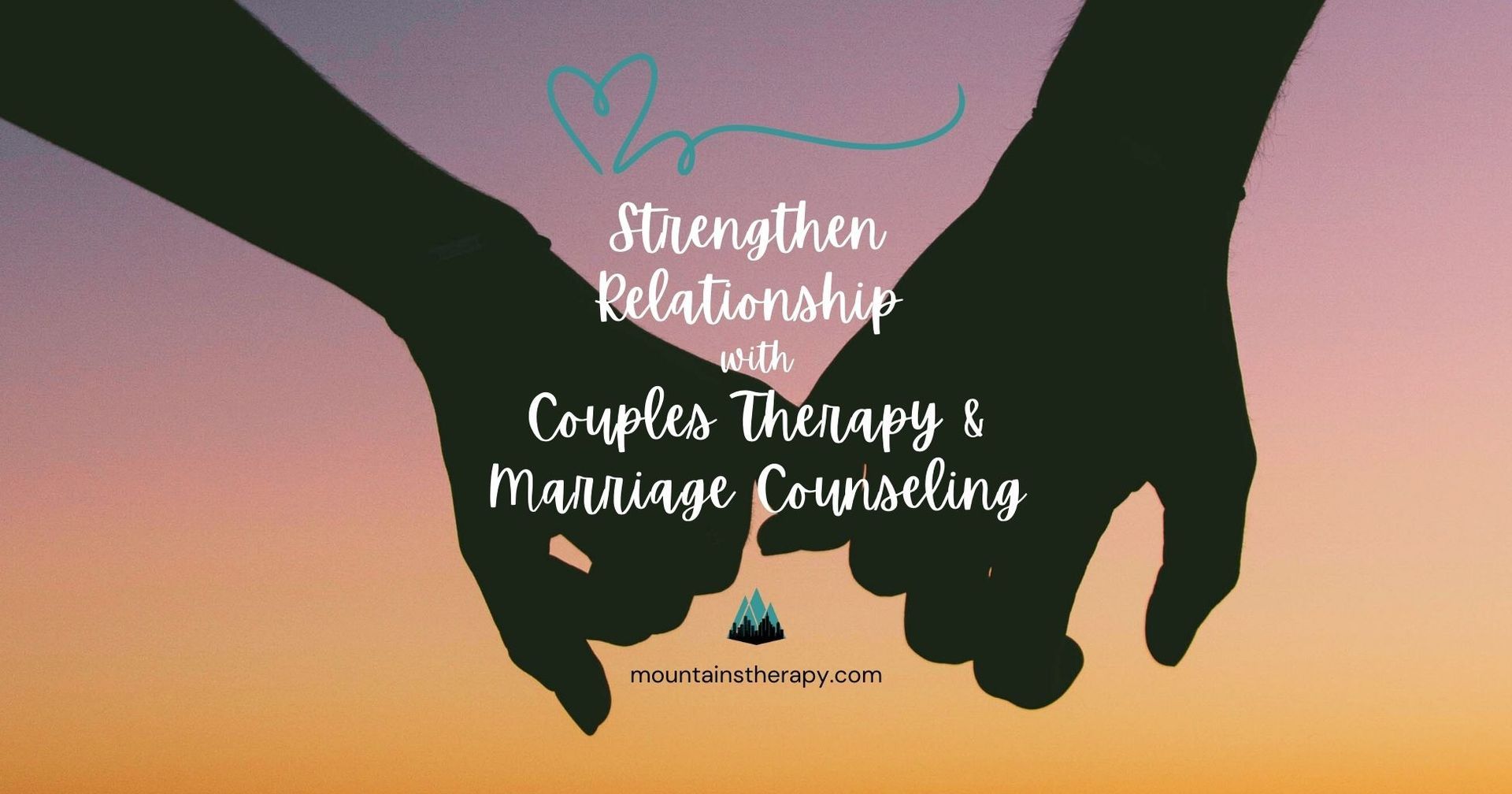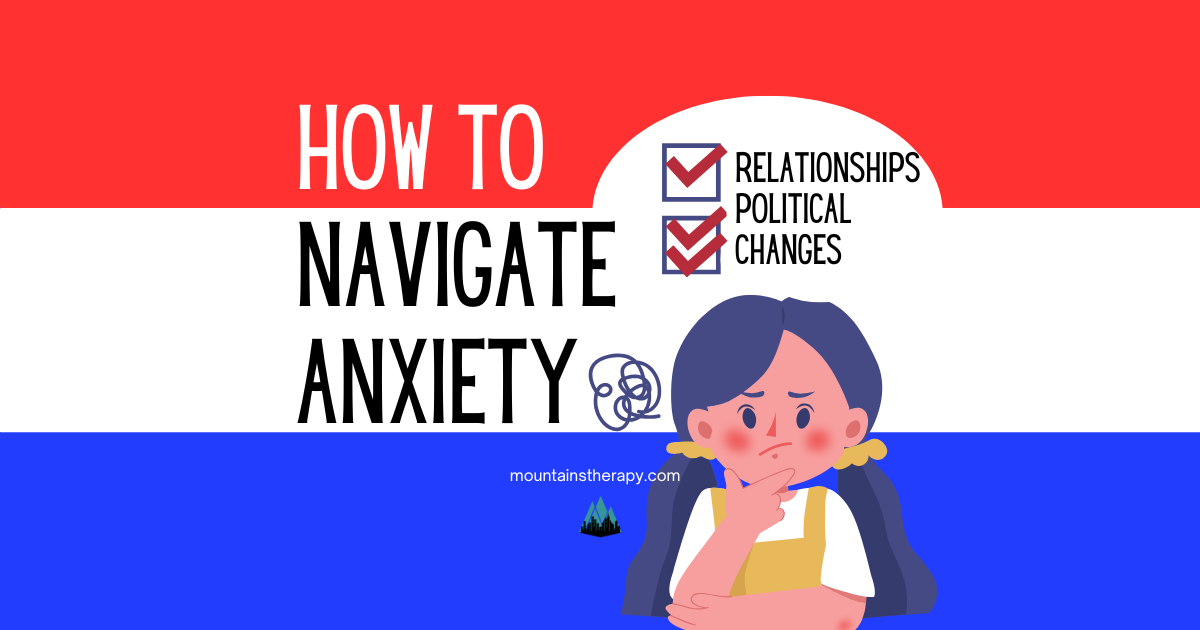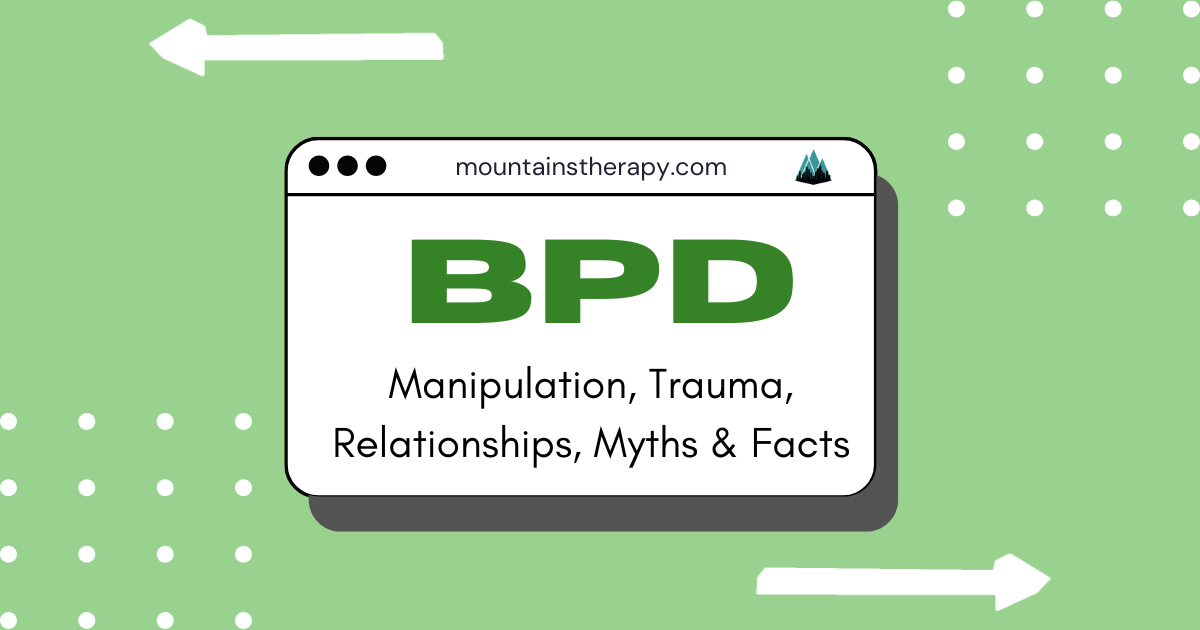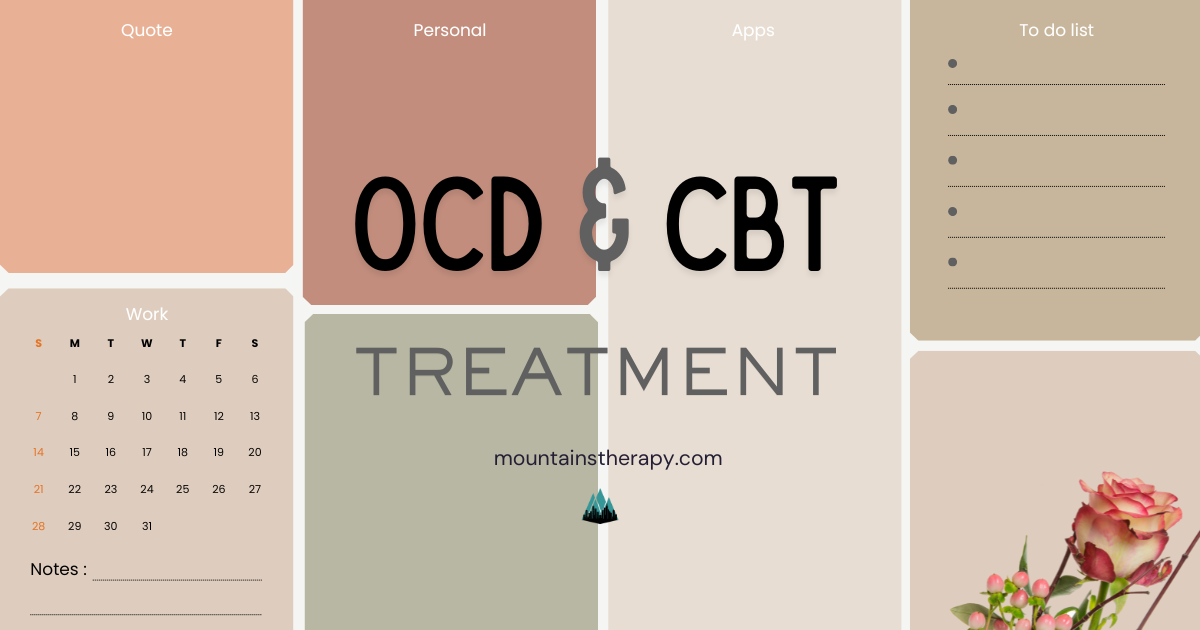What is Complex PTSD (CPTSD)?
Learn more about Therapy Treatment for CPTSD.
Living with Complex PTSD (CPTSD) can feel overwhelming and isolating. It’s different from traditional PTSD because it often stems from prolonged exposure to trauma rather than a single event. Here at Mountains Therapy, we understand how ongoing trauma, such as childhood abuse, domestic violence, or chronic neglect, can deeply impact your emotional well-being and daily life.
If you’re seeking trauma therapy or trauma counseling, it’s important to know that healing is possible. You don’t have to navigate the effects of CPTSD alone. At Mountains Therapy, we are dedicated to offering compassionate and specialized care for those facing the challenges of CPTSD. By working with our licensed therapists, you can begin to understand and manage the overwhelming emotions associated with CPTSD and move toward a life of healing and peace.
What Is CPTSD?
CPTSD often develops in response to repeated trauma that occurs over an extended period, especially during early development when we are most vulnerable. This could be due to childhood neglect, physical or emotional abuse, or any long-term traumatic experience. Unlike PTSD, which is often triggered by a single event like an accident or assault, CPTSD is more complex and layered.
Those with CPTSD often endure trauma that is interpersonal in nature—coming from someone they depended on or trusted, such as a parent, caregiver, or intimate partner. Because these traumatic experiences occur repeatedly and often within a relationship context, the effects of CPTSD can impact how individuals view themselves, others, and the world at large.
How Does CPTSD Differ from PTSD?
What is PTSD?
- PTSD, or Post-Traumatic Stress Disorder, typically results from a single traumatic incident, such as a car accident, natural disaster, or assault. While both disorders share some symptoms—like flashbacks, nightmares, and avoidance behaviors.
What is CPTSD?
- CPTSD, or Complex Post-Traumatic Stress Disorder encompasses additional symptoms due to the repetitive and prolonged nature of the trauma. These additional symptoms make CPTSD more complex to diagnose and treat.
Key differences between CPTSD and PTSD include:
- Emotional Regulation: People with CPTSD often struggle with regulating their emotions, experiencing intense feelings of anger, sadness, or fear that can feel overwhelming.
- Interpersonal Difficulties: CPTSD often affects how individuals interact with others, leading to difficulty trusting people, maintaining relationships, and feeling safe in social situations.
- Sense of Identity: Those with CPTSD may develop a deeply ingrained negative self-image, often feeling shameful, unworthy, or permanently damaged.
Symptoms of CPTSD
CPTSD manifests in a variety of ways that go beyond the classic symptoms of PTSD. These symptoms can be severe, persistent, and often affect all areas of life, from personal relationships to job performance. Some of the most common symptoms include:
- Difficulty regulating emotions: People with CPTSD often experience intense emotions that are difficult to control. This can lead to feelings of rage, despair, or extreme fear, seemingly out of proportion to the situation.
- Negative self-perception: A deeply ingrained sense of shame, guilt, or worthlessness is common. Individuals with CPTSD may struggle with believing they deserve good things or healthy relationships.
- Chronic feelings of emptiness or hopelessness: Many individuals feel disconnected from the world around them, often experiencing a deep sense of emptiness or believing that nothing will ever improve.
- Flashbacks or intrusive thoughts about the trauma: Re-experiencing the traumatic events can occur in vivid flashbacks or through recurring, unwanted memories.
- Dissociation or feeling detached from reality: Some individuals may feel disconnected from their own body or reality, often as a way to cope with overwhelming emotions.
- Difficulty forming and maintaining relationships: Trust issues, fear of abandonment, and difficulties with emotional intimacy can make it challenging to develop or sustain healthy relationships.
- Hypervigilance and an exaggerated startle response: Many individuals with CPTSD are constantly on edge, feeling the need to be on guard and overreacting to stimuli that remind them of past trauma.
The Benefits of Trauma Therapy for CPTSD
At Mountains Therapy, our approach to trauma counseling is holistic and personalized to meet your unique needs. Each of our therapists specialize in different therapeutic modalities to help clients with CPTSD. Here are a few types of therapy treatments for CPTSD that are trauma-informed and evidence based:
Cognitive Behavioral Therapy (CBT):
- CBT helps individuals reframe negative thought patterns and challenge distorted beliefs that have developed due to trauma. By identifying these cognitive distortions, you can learn to change your thinking and behaviors, reducing the intensity of your CPTSD symptoms.
Dialectical Behavioral Therapy (DBT):
- DBT is particularly useful for those struggling with emotional regulation. It teaches coping skills and mindfulness techniques that help manage intense emotions, reduce impulsive behaviors, and improve interpersonal effectiveness.
EMDR Therapy (Eye Movement Desensitization and Reprocessing):
- EMDR is a powerful therapy for processing traumatic memories and desensitizing emotional reactions to those memories. By using bilateral stimulation (such as eye movements), EMDR allows you to reprocess traumatic events in a way that promotes healing and reduces distress.
Somatic Therapy:
- Somatic therapy focuses on the mind-body connection. Trauma is often stored in the body, manifesting in physical symptoms such as tension, pain, or chronic fatigue. Somatic therapy helps release stored trauma by incorporating physical movement and awareness into the healing process.
Self-Care Strategies for Coping with CPTSD
In addition to trauma therapy, practicing self-care is an essential part of managing CPTSD. Here are some strategies that can support your healing journey:
Grounding Techniques:
- Grounding exercises, such as focusing on your breath, engaging your senses, or using mindfulness, can help you stay present and reduce the intensity of flashbacks or dissociative episodes.
Establish a Routine:
- Creating a structured daily routine can provide a sense of stability and predictability, which is especially important when coping with the unpredictability of CPTSD symptoms.
Build a Support Network
- Surround yourself with supportive people who understand your experience. Whether it’s friends, family, or a support group, having people who listen and validate your emotions can be incredibly healing.
Practice Self-compassion
- Be gentle with yourself. Healing from CPTSD is a long process, and it’s important to acknowledge your progress, no matter how small. Avoid self-criticism and practice speaking to yourself with kindness.
Why Choose Mountains Therapy for Trauma Counseling?
We understand that finding the right therapist can be challenging, but at Mountains Therapy, we prioritize creating a safe and supportive environment for all our clients. Whether you’re located in New Jersey, North Carolina, Florida, or Utah, we offer both in-person therapy in NJ and online therapy to meet your needs.
Our services include:
- Individual Therapy
- Explore your personal experiences, traumas, and coping mechanisms with a therapist who can guide you through the healing process.
- Family Therapy
- Address relational issues that might have stemmed from or contributed to trauma. Family therapy can help create healthier communication patterns and rebuild trust.
- Couples Therapy
- Trauma can deeply affect relationships. Couples therapy can help rebuild trust, improve communication, and strengthen emotional intimacy.
At Mountains Therapy, we specialize in trauma counseling and offer a variety of therapeutic approaches tailored to your needs. Our compassionate therapists will work with you to create a personalized treatment plan to help you regain control of your life and move toward recovery.
Seeking Support: CPTSD Therapy and CPTSD Counseling
If you’re searching for trauma therapy near me and trauma counseling near me, Mountains Therapy offers compassionate care tailored to your unique situation. Our licensed therapists specialize in trauma therapy, and we are committed to helping you reclaim your life from the impact of CPTSD. Whether you’re seeking therapy for yourself, your relationship, or your family, our team is here to support your healing journey.
Take the First Step Toward Healing
At Mountains Therapy, we believe in the power of
trauma therapy and
trauma-informed counseling
transform lives. Whether you're looking for individual therapy, family therapy, or couples therapy, we’re here to support your journey toward healing and peace. Reach out today to find the right trauma counselor near you and begin your path to recovery.
Take that first step by
scheduling an appointment
with one of our expert therapists, and start your journey toward a brighter future.
Remember, healing is possible. We are here to support along the way.
Contact us to connect with Complex PTSD Therapists and CPTSD Counselors.
Blog Posts: Elevate Mental Health Blog by Mountains Therapy
IMPORTANT: Call 988 Suicide and Crisis Lifeline 24/7, visit emergency room, or call 911, If you or someone you know are in a mental health crisis or be in danger.
All Rights Reserved | Mountains Therapy LLC

